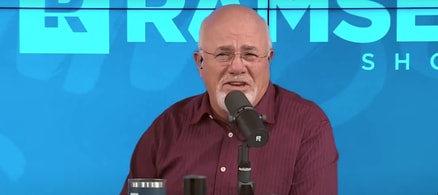Why are payouts going unclaimed?
Oftentimes loved ones fall ill, develop dementia or die without ever mentioning they had a life insurance policy.
Other times, insurers can’t find a beneficiary because of outdated contact info — or they don’t even know the policyholder has died.
You may be surprised to learn there is no “master list” of who is dead or alive. The Social Security Administration does track people who receive its benefits so they don’t keep sending payments to the deceased, but that doesn’t account for everyone.
“Millions of people, in fact, are not covered by Social Security (federal employees, state employees in four states, railroad employees, etc.), and therefore would not appear on this list,” notes the New York-based Insurance Information Institute.
Back in 2013, Consumer Reports estimated that your odds of having a lost life insurance payout in your name was about 1 in 600.
The average payout at the time was $2,000, with some as high as $300,000.
Stop overpaying for home insurance
Home insurance is an essential expense – one that can often be pricey. You can lower your monthly recurring expenses by finding a more economical alternative for home insurance.
SmartFinancial can help you do just that. SmartFinancial’s online marketplace of vetted home insurance providers allows you to quickly shop around for rates from the country’s top insurance companies, and ensure you’re paying the lowest price possible for your home insurance.
Explore better ratesHow do I find out whether I’m owed money?
You can find many easy-to-use tools online to help you hunt for your missing payout. The challenge, though, is that you’ll have to look at a few of them to be truly thorough.
Your first stop when nosing around for missing money is — appropriately enough — MissingMoney.com, a major database for all kinds of unclaimed property.
After that, try these dedicated tools:
NAIC Life Insurance Policy Locator Service
The biggest and best tool available was launched in 2016 by the National Association of Insurance Commissioners (NAIC).
More than 227,000 requests were made via the free and confidential tool, the NAIC reported in mid-2020. People found more than 81,000 matches worth over $1 billion in life insurance claims and annuities.
You’ll need to provide some details about the policyholder, including their birth date and Social Security number. A death certificate can help with that information.
If there’s a match — and you’re a beneficiary or otherwise legally allowed to be informed — the relevant insurer will contact you directly.
Veterans Affairs Unclaimed Funds Search
If you think you may be the beneficiary of a U.S. military veteran’s policy, the U.S. Department of Veterans Affairs (VA) has a searchable online database to check out.
The database tracks unclaimed death awards, dividend checks and premium refunds from VA Life Insurance Funds. (Two other types of VA policies, Servicemembers Group Life Insurance and Veterans Group Life Insurance, are not included.)
If the post office can’t track down the rightful recipient, the cash is returned as undeliverable to the VA.
In the event that you find a veteran’s record with the name you entered, you must contact the VA to give additional identifying information to prove you are entitled to the money.
State locators
Twenty-nine states offer their own free locator tools, like the Illinois Department of Insurance Life Policy Finder, and other forms of assistance.
If you’re unsure whether your state’s insurance department has an equivalent, try giving them a call.
And if there’s a chance the policy originated in Canada, you can try contacting the Canadian Ombudservice for Life and Health Insurance.
Other avenues to search
There are several other methods to search for lost policies, but you have to put on your detective hat.
The first step is to ask people who were close to the policyholder. Talk to family, friends, coworkers, previous employers, social groups, labor unions, spiritual advisers and doctors.
That could lead you to a number of professional advisers, like lawyers, financial planners, accountants, insurance agents and others who could share something useful.
Next, look for a paper trail. There may be bank records, documents filed away and income-tax returns to review. Even a safety-deposit box may hold key information.
There are private companies that charge fees to search on your behalf. It may sound like less of a hassle, but make sure you are dealing with a reputable company that is going to put in the work.
Sponsored
Unexpected vet bills don’t have to break the bank
Life with pets is unpredictable, but there are ways to prepare for the unexpected.
Embrace Pet Insurance offers coverage for treatment of accidents, illnesses, prescriptions drugs, emergency care and more.
Plus, their optional wellness plan covers things like routine vet trips, grooming and training costs, if you want to give your pet the all-star treatment while you protect your bank account.






